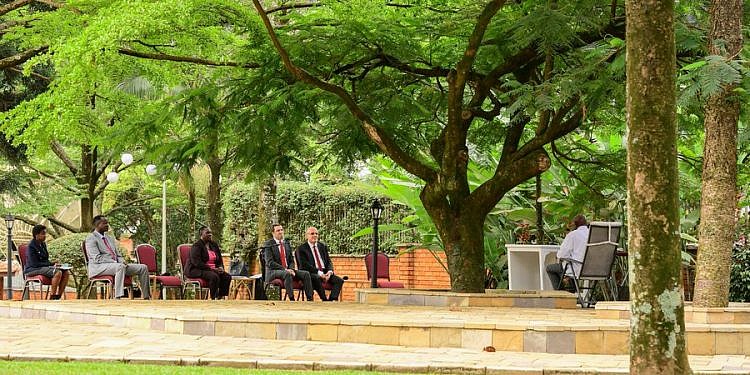President Museveni has given green light to the Ministry of Health to use Artificial Intelligence in combatting Malaria in the country.
On Thursday, the president met with a delegation of Israel businessmen led by Israel Green and Koby Shushan who informed him of the possibility of fighting Malaria using AI and that this would easily be done by by Malera Technologies Limited.
The businessmen told Museveni that this would be done through the deployment of Artificial Intelligence to support the industrial Sterile Insect Technique (SIT).
“This innovative technology has already been successfully implemented in Israel and the USA,” the businessmen told Museveni.
They also informed him that the same has already been approved by the Ugandan Ministry of Health.
During discussion on the project’s budget and timeline, the president said this was a good initiative and consequently directed the immediate partial allocation of funds from the current governmental budget, with the main funding to come from the government of Israel’s funding program supporting this project.
In a follow up working meeting with the Ministry of Finance it was decided to analyse the financial options.
With early detection and diagnosis of malaria being essential to effectively treating the disease researchers and companie are using algorithms to analyse microscopic images of blood samples to detect malaria parasites in red blood cells.
These algorithms have the potential to detect malaria and identify various species and could serve as a reference method in hospitals, for example, supporting more accurate malaria diagnosis.
AI is also being used for predictive analysis and surveillance, with scientists using AI to analyse environmental and meteorological data to predict areas where malaria outbreaks are likely to occur and guide more effective targeting of prevention and control measures to these high-risk regions.
The Forecasting Healthy Futures initiative, for example, is using AI to identify proactive solutions that anticipate and mitigate the effects of a warming planet on human health in the most vulnerable communities.
While delivering existing tools for malaria control is critical to saving lives from malaria, new and improved tools are needed to address emerging threats such as antimalarial resistance.
AI simulations are being used to accelerate the process of discovering new antimalarial drugs by analysing interactions between potential drug compounds and malaria parasites, helping researchers identify promising drugs for further testing.
During the meeting at State House in Entebbe officials from Greenlight Business Ventures LLC also proposed to build, launch, and operate a 12 Gbps Ka-Band state-of-the-art communication satellite designed to connect rural areas to the global information superhighway, support healthcare, education, agriculture, and more.
This project aims to complement existing fiber optics and other infrastructure projects.
Utilizing American technology, the satellite will be managed from Uganda by Ugandan experts, who will be trained as part of a new Space Education Program and Academy.
This initiative aims to inspire and educate future generations in space sciences and technology.
President Museveni emphasized the importance of this initiative and directed relevant ministries to explore and expedite its promotion.
In a follow up meeting with the relevant teams it was decided start working on commercial proposals.






